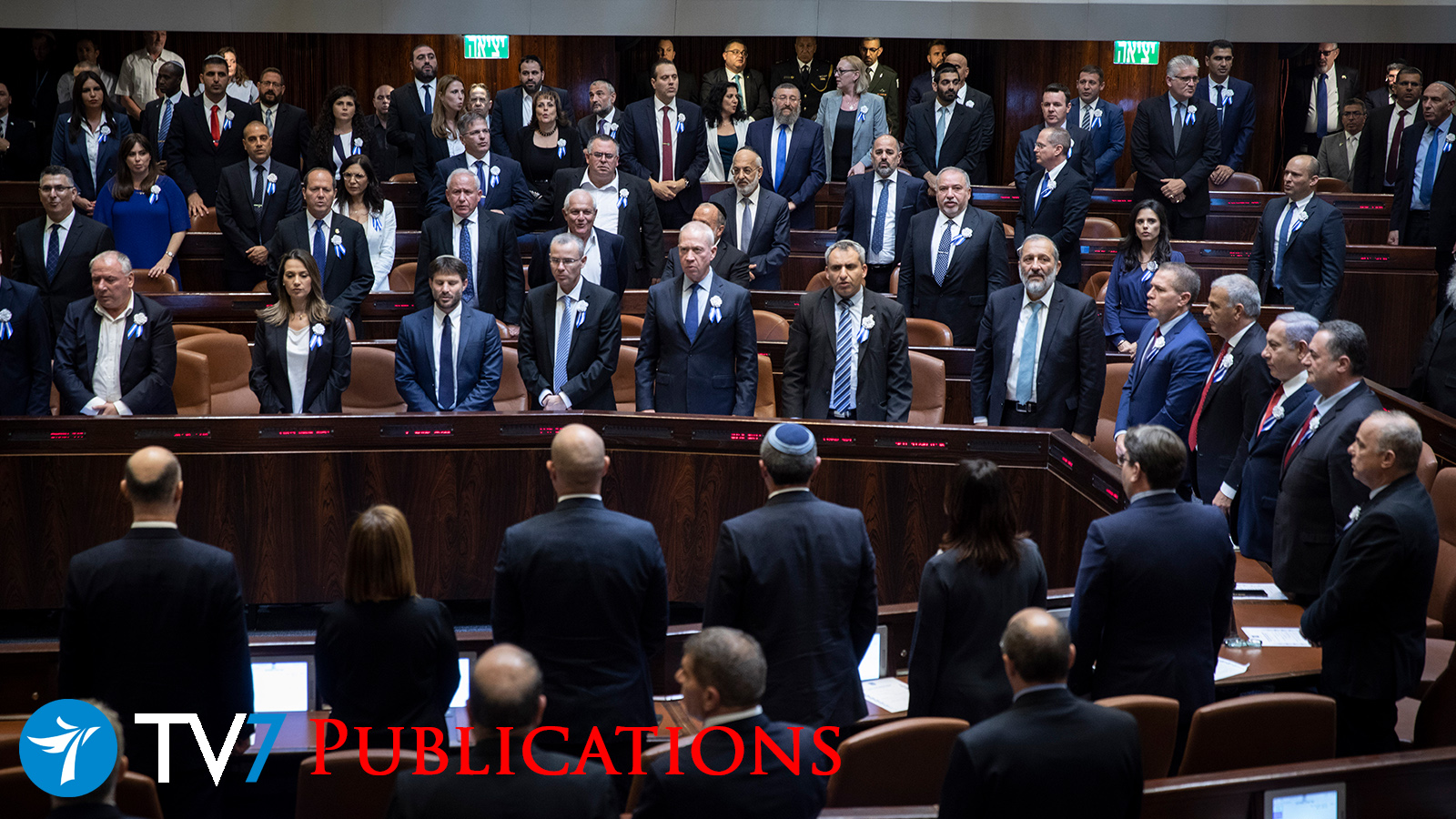By Erin Viner
President Reuven Rivlin addressed the opening of the first session of the 22nd Knesset in Jerusalem today, just 156 days after having welcomed its predecessor, the 21st parliament.
As he arrived at the unicameral national legislature, the President was greeted by an honor guard as an IDF band performed the national anthem “Hatikvah” (“The Hope”). He then placed a wreath on the memorial for Israel’s fallen soldiers before entering the plenum.
After his warm speech to the 120 incoming Members of Knesset (MKs), the Israeli lawmakers individually took the oath of office, by responding affirmatively as Acting Knesset Speaker Yuli Edelstein read: “I pledge allegiance to the State of Israel and faithfully fulfill my mission in the Knesset.”
The festive event officially began at 8 am, with an entrance march up a red carpet. After the swearing-in ceremony at 4 pm, the MKs attended a toast at a reception on the balcony of the Chagall Lounge, where the traditional “class photo” was taken . President Reuven Rivlin, Prime Minister Benjamin Netanyahu and his wife Sara, President of the Supreme Court Dalia Dorner and her husband Shmuel, Acting Knesset Speaker Edelstein and his wife Irina were in attendance.
Israeli law mandates the swearing-in ceremony be held two weeks after an election, generally amid ongoing negotiations to form the next government. Incumbent Prime Minister Benjamin Netanyahu of the Likud currently holds the mandate, with 28 days and a possible two-week extension to build a successful coalition.
The 120 Knesset Members were directly elected by the Israeli public on September 17, in what was an unprecedented second balloting in one year. The 21st Knesset elected on April 9 voted to dissolve itself 127 days ago, upon Netanyahu’s inability to form a governing coalition.
The 22nd Knesset consists of 92 men and 28 women, although Ayelet Shaked (Yamina) is the sole female head of a faction and Orly Levi-Abekasis (Labor-Gesher) is her party’s co-chair.
The parliament also includes 8 first-time members, Yair Golan (Democratic Union), Walid Taha (Joint list), Sami Abu Shehadeh (Joint List), Jaber Asakla (Joint List), Alexander Kushnir (New Right), Matan Kahane (New Right), Mark Ifraimov (Yisrael Beitenu) and Moshe Abutbul (Shas).
During a special orientation seminar about their official rights and duties, Knesset Speaker Edelstein wished the freshmen MKs good luck and said they were “blessed” to have access to the “knowledge, professionalism and excellent service” provided by the Knesset’s employees. He then stressed that they have “been given a privilege which most of Israel’s citizens do not have – to serve as emissaries of the public, and it makes no difference whatsoever whether you are in the coalition or the opposition, there are a great many things a member of Knesset can do.”
There are also nine returning MKs who didn’t serve in the 21st Knesset but either served at other times or did not serve a full term in the 21st Knesset. They are Orly Levi-Abekasis (Labor-Gesher), Omer Barlev (Labor-Gesher), Revital Swid (Labor-Gesher), Naftali Bennett (New Right), Ayelet Shaked (New Right), Nitzan Horowitz (Democratic Union), Stav Shaffir (Democratic Union), Saeed Alkharumi (Joint List) and Hamad Amar (Yisrael Beitenu).
According to information provided by the Knesset, 70 of the plenum are of Ashkenazi-Jewish background, 35 Sephardic-Jewish, and 15 minority members including Christians, Muslims and Druze. 87 reportedly consider themselves as “non-religious,” 18 “ultra-Orthodox,” 12 “religious Zionist “and 3 “religious Muslims.”
The Joint List of Arab parties declared it would boycott the event, as part of a general strike in protest over what they perceive to be inadequate police response to rising violence within the Arab community.
There are nine parliamentary groups, the largest of which is the Blue and White faction of 33 seats. The smallest is the Democratic Union with just 5.
